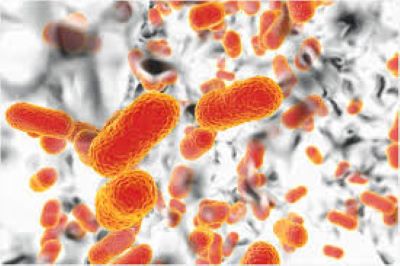“I found several culture plates where none of the six antibiotics placed on them had any effect on the bacteria,” recalls Habibullah Ibuowo, a 400-level Medical Laboratory Science student. This startling discovery occurred during his 10-week clinical training, a requirement for Medical Laboratory Science (MLS) students. It was his first encounter with antimicrobial resistance (AMR), a problem that is quietly but dangerously growing in labs worldwide.
By Wonderful Adegoke
According to WHO, Antimicrobial Resistance (AMR) occurs when bacteria, viruses, fungi and parasites no longer respond to antimicrobial medicines. As a result of drug resistance, antibiotics and other antimicrobial medicines become ineffective and infections become difficult or impossible to treat, increasing the risk of disease spread, severe illness, disability and death. AMR is a natural process that happens over time through genetic changes in pathogens. Its emergence and spread is accelerated by human activity, mainly the misuse and overuse of antimicrobials to treat, prevent or control infections in humans, animals and plants.
Ibuowo’s experience sparked a deeper interest in sensitivity testing, a process where bacteria are cultured alongside antibiotics to determine which drugs can effectively treat infections. What intrigued him most was the unsettling reality of bacteria resistant to multiple antibiotics.
Motivated by curiosity and concern, Ibuowo sought more information on AMR and soon became part of a student-driven initiative fighting this escalating threat: the Usmanu Danfodiyo University Young Antimicrobial Resistance Stewards (UDUYARS).
UDUYARS is no ordinary student club. This pioneering initiative brings together a multidisciplinary team of students united by a shared mission: to combat the spread of AMR and address related health challenges. Their efforts align with the global action plan on AMR and contribute directly to achieving Sustainable Development Goal 3—Good Health and Well-being. Locally, UDUYARS raises awareness and works to protect the health of their community.
The club’s vision is ambitious. Collaborating with medical and non-medical innovators, UDUYARS aims to become a trailblazing force in the fight against AMR, developing innovative strategies and solutions to tackle the problem head-on.
By equipping themselves with cutting-edge knowledge and tools, these students stand at the forefront of what the Bureau of Investigative Journalism has described as “disturbing first-hand evidence of what happens when drugs stop working.”
“I was more than happy to join them in spreading the word,” Ibuowo shared, reflecting on his advocacy efforts. His role as a vocal advocate for antimicrobial stewardship has led him to engage peers, friends, and colleagues in critical conversations about the responsible use of antibiotics, the dangers of misuse, and the looming threat of AMR.
Now serving as the club’s Outreach Coordinator, he participates in community outreach programs and has visited pediatric wards at the University Teaching Hospital (UDUTH) to educate young people on antimicrobial stewardship.
More Stories from AMR Advocates
The ripple effect of UDUYARS extends far beyond just one student. Adeleke Shakirat Adenike, a Nursing Science student, credits the club with transforming her professional perspective.
“Before UDUYARS, I had only a basic understanding of AMR. I didn’t fully grasp its significance as a global threat,” she admitted. Through her involvement in outreach programs and presentations, Adenike has not only deepened her knowledge but also gained the confidence to address wider audiences on the importance of AMR awareness.
“I’ve learned so much,” she added. “It’s been amazing to share that knowledge with my peers. UDUYARS has given me a sense of purpose and fostered a strong spirit of volunteerism, and it’s been incredibly fulfilling. My public speaking skills have also improved through this experience.”
The significance of AMR is hard to overstate, and UDUYARS continues to rally students from across disciplines in its campaign. Safiyyah Ismaeel, from the Faculty of Pharmaceutical Sciences, is keenly aware of the urgency.
“We see the need to educate young people about AMR because this growing global issue is making infections harder and harder to treat,” she explained. “By working together, we can spread awareness across all departments and fight this menace.”
In the face of an ever-evolving health crisis, UDUYARS demonstrates how collective action, led by an inspired generation of students, can contribute to solving one of the most pressing public health challenges of our time.


